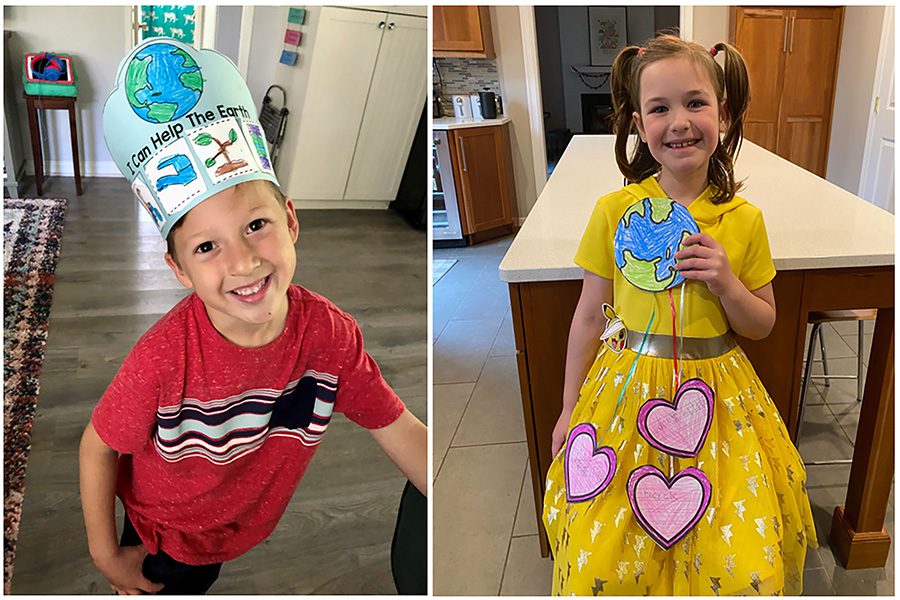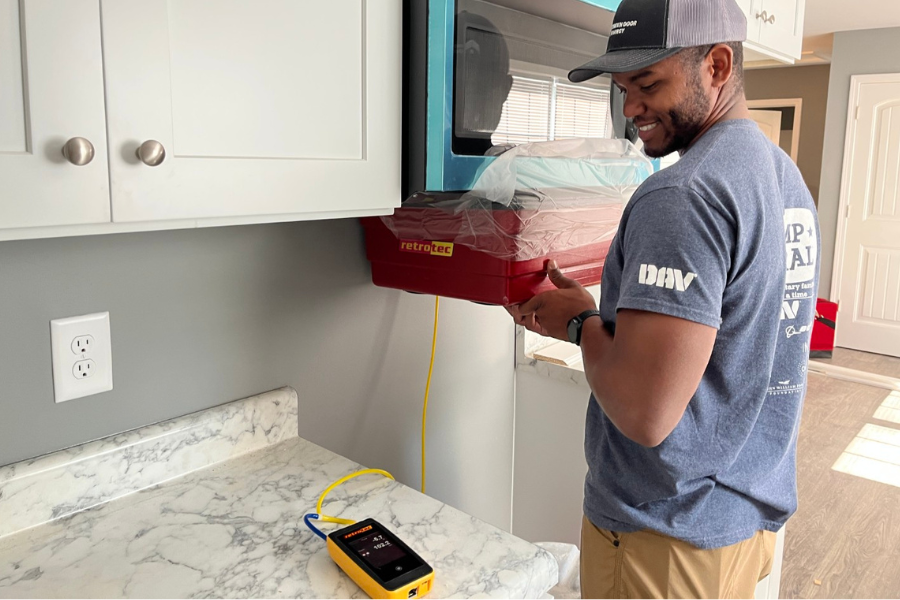Apr 22, 2022
The Future of Our Planet Depends on Early Education
The article highlights the importance of early education and awareness of energy consumption in reducing wastage in the home and building performance industry. The author argues that while some progress has been made, there is still a need for more education and involvement of children in environmental protection efforts. Workforce development is also emphasized as a key factor in bringing more people into the industry and addressing real-time needs. Several quotes from children are included, stressing the importance of Earth Day and protecting the environment for the sake of the planet and all living beings.
By: Macie Melendez

There’s lots of us in the home and building performance industry that work hard to make the planet a more sustainable place to live. Unfortunately, residential energy consumption is still the third largest use of energy in the US. Of that, 65% is used and 35% is wasted. The majority of that wasted energy comes from heating and cooling a home, followed by other energy-wasting items like lighting and “vampire” plug loads.

So, how can we make a bigger difference? In my opinion, it’s about early education. When I was growing up in the ’80s and ’90s in California, I distinctly remember my parents harping on us to turn the lights off when we left a room. And, of course, there was the classic, “We’re not paying to cool the outside!” if we left a door open.
California did a good job of campaigning for energy savings at home… not so much in improving your home with insulation and air sealing, but more about awareness of energy use. In 2001, California introduced the “Flex Your Power” campaign, which helped convince Californians to reduce peak energy use sufficiently to avoid power outages. This was the largest electricity conservation campaign ever conducted in any state in the US.
Growing up in West Virginia, BPA’s Director of Marketing and Communications Katie Miller was also taught about the importance of energy savings. “I recall hearing about energy conservation in first grade,” she says. “My parents absolutely had us save energy, but it was more about saving money than energy. Open windows instead of cooling, use ceiling fans, shut off lights.”
For her, it was school lessons that made the most impact. “In first grade, when we did that lesson, it was the first time I learned the world could really be in trouble,” she says. “And it taught me that it takes all of us working together to make an impact.”
Now, a mother of her own, Miller’s kids are learning these same lessons and taking them to heart. (Her 11-year-old published an article on the topic today, actually. You can read it here.) And when asked about the importance of Earth Day, her 7-year-old said, “Earth Day is important because we need to be healthy and if the earth isn’t healthy, we can’t be healthy.”

I asked several people I know to also ask their kids that same question: What is Earth Day about and/or why is it important? Here’s what they had to say (from youngest to oldest):
“Treating the Earth nice. We can hug somebody and kiss somebody for the Earth…and not eat them!”
– 3 years old
“Because we celebrate the Earth. We can help our planet by keeping it clean from trash and stuff to not hurt the animals. And keep trash out of the ocean because that makes the animals die.”
– 6 years old
“Because we celebrate the Earth and help the Earth so we can be clean, and we wouldn’t have oil spills.”
– 8 years old
“Earth Day is important because the Earth is REALLY messed up right now because we won’t stop polluting it. On Earth Day, we should pick up all of the trash we see and praise all of the animals…like it’s their birthday!”
– 9 years old
“Earth Day is important because it helps support the Earth’s environmental protection.”
– 10 years old
“Earth Day is important because if we don’t take time to protect the Earth, then we as humans won’t be able to survive on Earth long.”
– 12 years old
“Earth Day is a day to bring awareness to the issues of our planet and to inspire people to do good things for Earth.”
– 12 years old
“Because it’s a day to talk to people about helping our Earth and making sure it stays healthy.”
– 15 years old
“Earth Day is about protecting nature and giving back a little bit of what we’ve taken from our planet. And it’s important because we’ve taken SO MUCH—the least we can do is dedicate a day to fixing our mess.”
– 16 years old

One of BPA’s board members, Leticia Colon de Mejias, actually authored two children’s books on related topics: “Dinero the Frog Learns to Save Energy” and “Pesky Plastic: An Environmental Story.” I know my kids learn about the environment and importance of helping our planet in elementary school, but I can’t help but wonder if we’re doing enough beyond that. Yes, our kids know what’s happening…but what else can they do to fix it? How can they get involved as adults? Home and building performance seems like a natural career path progression for anyone interested in ways they can make a difference.
At BPA, we’ve been doing a lot of work in recent months in terms of workforce development—a big part of which is finding ways to bring more people into our field, letting them know there are good jobs here doing good big-picture things. BPA’s Xavier Walter is taking a “boots on the ground” approach to involving state stakeholders and addressing real-time needs. The goal is that BPA will provide workforce development solutions from a network of state affiliates.
From my point of view, this kind of work is crucial. There are a lot of people out there who care, but simply don’t know our industry exists. We need to change that. Because, as my 6-year-old said, “We need to be nice to the Earth because we live there.” And it’s as simple as that.
I hope you take time today to celebrate our planet—whether that be by getting outdoors, turning off lights in rooms you’re not using, or picking up trash on the ground. And remember, we celebrate today, but every day is Earth Day.





